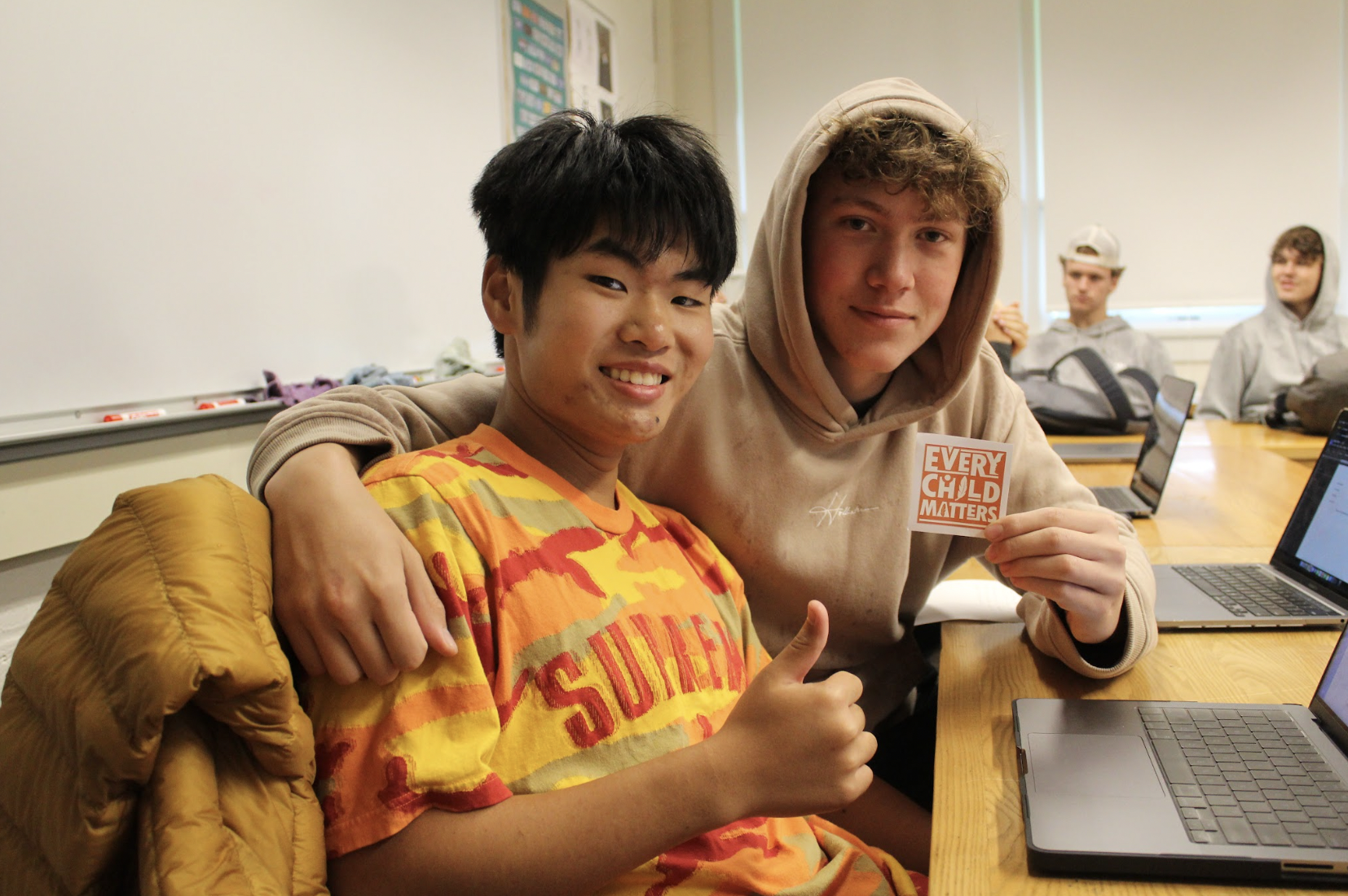Every Child Matters
By Isabel Hunt ‘26
Students wear orange to show their support for Every Child Matters, photo by Kaia Swamp ‘25
Every Child Matters is a recognition and a remembrance of the hundreds of thousands of children who were forcibly taken from their families from the 1830s to the 1960s. They were forced into residential schools, which aimed to convert them to Christianity and have them serve. They were later found killed. Every Child Matters is a recognition or remembrance of all the Native American lives lost at the hands of the church.
“The Every Child Matters movement is one day of remembrance, but it should be all year long. This and like start, there are still more unmarked graves that are found every year. So the number keeps growing.” said Charlie Neisner, a faculty member, and co-leader of the Native American affinity group at NMH. He emphasized that Every Child Matters is a relatively new movement and recognizes its unfolding significance. The movement gains greater importance as more unmarked graves are discovered, calling for continued awareness and reflection.
NMH's Role in Spreading Awareness at the school and other educational institutions has an important role to play in promoting the Every Child Matters movement. Furthermore, teaching the history of indigenous children's experiences in residential schools, the forced conversion to Christianity, and the broader context of Native American history should be integrated into the educational curriculum. Neisner added, “Starting to teach about it in history classes is one thing. Some things were happening when I was growing up, but they aren't taught now. This is not a new issue, it started almost 200 years ago, so I think teaching what happened in Christian conversion is important. I think it's something that not just NMH, but United States history focuses a lot on the politics of presidential candidacies and international and national wars, but what were you doing domestically”.
A well-rounded education should encompass not only political and international events, but also the domestic issues that have shaped the nation's history. This can foster greater social awareness among NMH students and prepare them to engage with different cultures and historical experiences beyond the confines of their bubbles.
The Every Child Matters movement serves as a stark reminder of the injustices committed against indigenous children in residential schools. Its importance continues to grow as new unmarked graves are discovered and the need for remembrance and reconciliation becomes even more urgent. NMH and similar institutions must play a role in educating students about this dark chapter in history and supporting the movement. By doing so, they contribute to a more just and empathetic society where every child truly matters.

